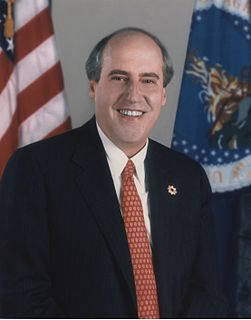A Quote by Gary Hirshberg
We as consumers really do have the right to know what's in our food.
Related Quotes
The people who benefit from this state of affairs have been at pains to convince us that the agricultural practices and policies that have almost annihilated the farming population have greatly benefited the population of food consumers. But more and more consumers are now becoming aware that our supposed abundance of cheap and healthful food is to a considerable extent illusory.
When I joined Time Inc., one of the things that was important to me was ensuring that our content is where consumers want to read it. The Apple newsstand is an important place where a lot of consumers are. And Apple is really becoming a good partner to publishers. We are confident we can deliver a experience for our readers that 's really good.
Some kids have never seen what a real tomato looks like off the vine. They don't know where a cucumber comes from. And that really affects the way they view food. So a garden helps them really get their hands dirty, literally, and understand the whole process of where their food comes from. And I wanted them to see just how challenging and rewarding it is to grow your own food, so that they would better understand what our farmers are doing every single day across this country and have an appreciation for ... that American tradition of growing our own food and feeding ourselves.
































